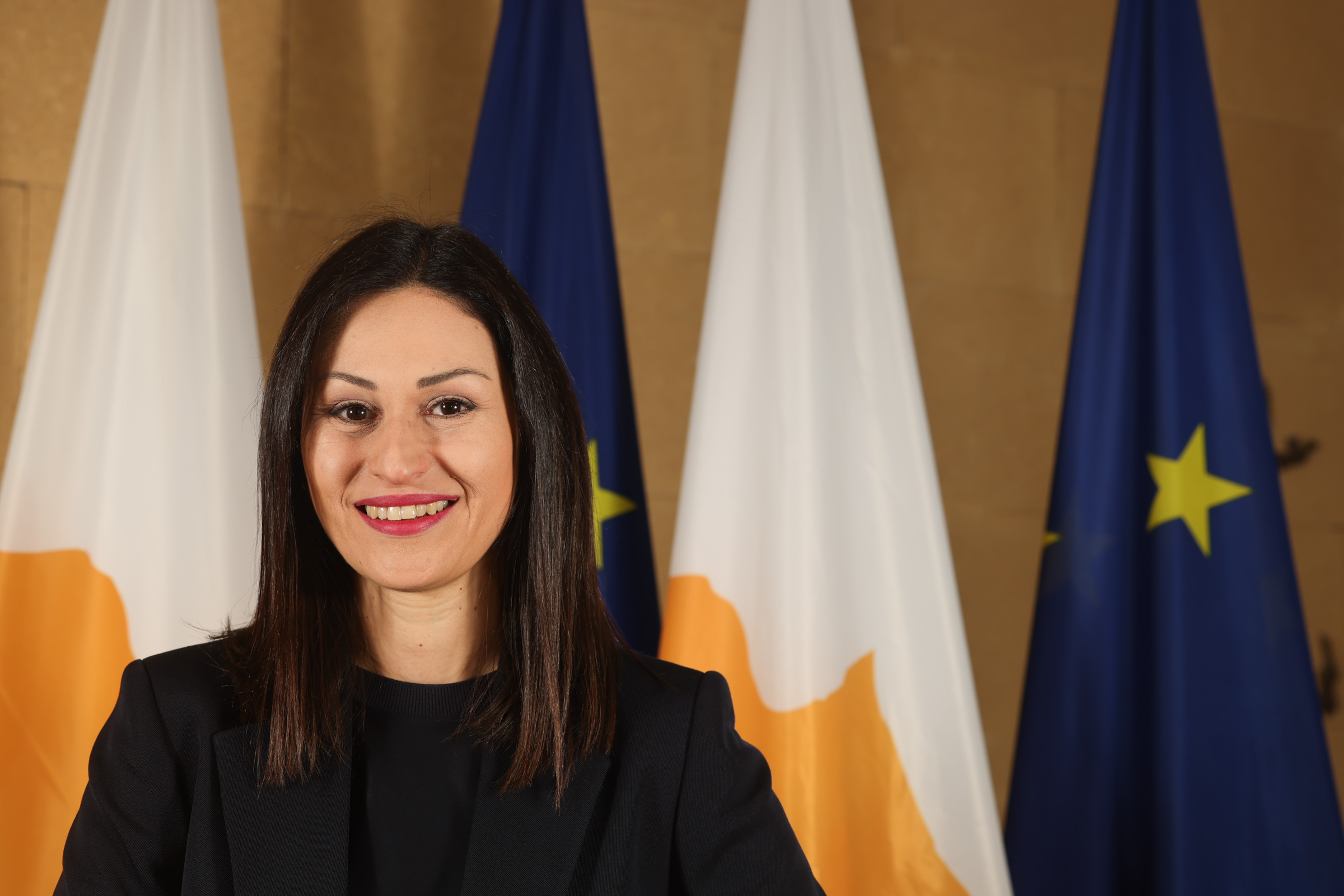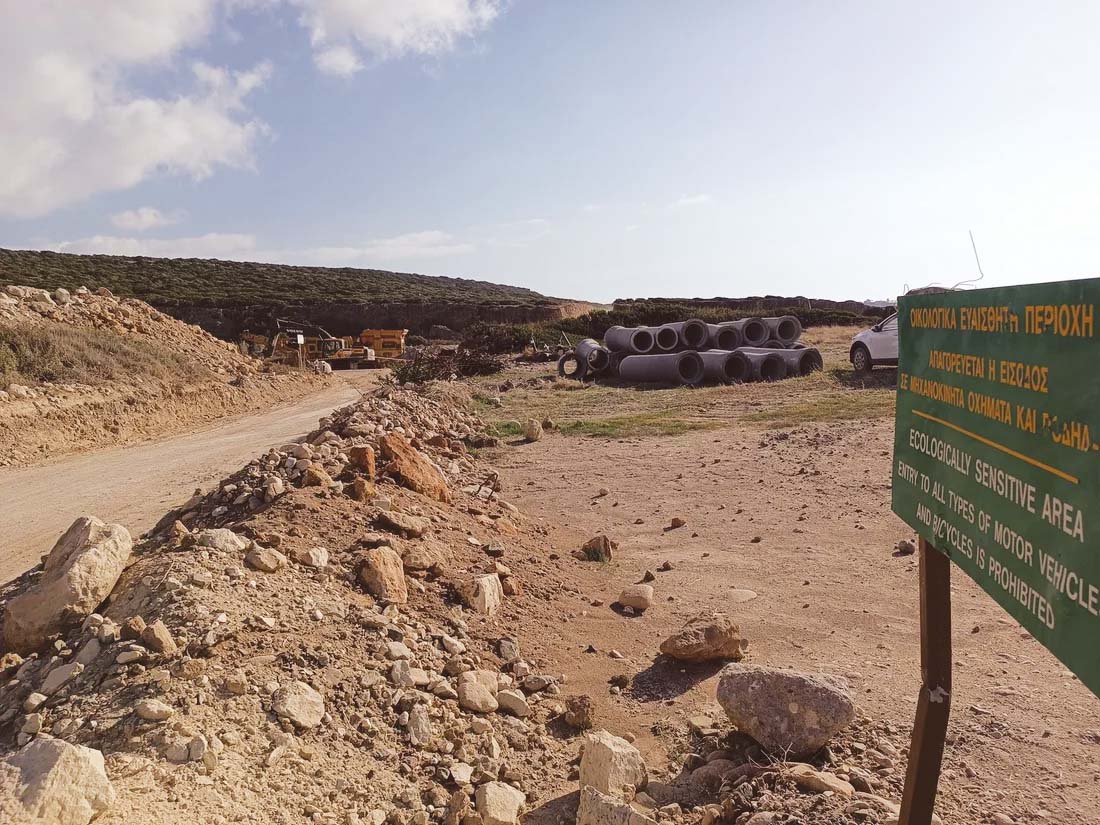Widespread condemnation of agriculture minister’s latest diktat on who can talk to the press
A leaked memorandum from the ministry of agriculture caused great consternation a couple of weeks ago.
In it, Agriculture Minister Maria Panayiotou – whose portfolio also includes rural development and the environment – gave instructions that no employee, irrespective of rank, would henceforth be allowed to communicate with the media, except in writing and unless the statement was cleared by the minister’s press office, effectively placing her in charge of the flow of information.
The instructions were widely condemned, with the Journalists’ Union, in a scathing statement, saying they constituted “an anachronism harkening back to times of non-transparency”.
The outcry was such that Panayiotou – a former press officer herself – claimed she had been misunderstood, without however withdrawing the instructions which are still presumably in place.
The minister’s actions are hard to defend. As a matter of principle, allowing journalists free access to sources is clearly in the public interest – especially when those sources work in the public sector, and have information that will impact the public. Think questions over water policy, farming, the Akamas – all issues very much in the public interest.
Even in practical terms, though, how are these instructions supposed to work? The agriculture ministry is sprawling, its work highly technical. Much of the information sought by reporters is likely to come from specialists and scientific experts. Does the minister, or her press officer, have the knowledge to fact-check the experts?
Not to mention the delays it would cause, and the chilling effect the diktat would have on communication in general.

What was most provocative about the whole incident, however, was that it appeared to be part of a pattern.
Earlier, in mid-November, there was another outcry when the sports writers’ union, under heavy pressure from the Cyprus Football Association, withdrew an award to Fanis Makrides, a journalist whose work had uncovered corruption in local football.
Earlier still, from July to October, came the fevered objections – including from worried outsiders like the International Federation of Journalists and the Organisation for Security and Cooperation in Europe – to the government’s proposed law criminalising ‘fake news’, defined to include defamation and harassment as well as misinformation.
The main thrust of the objections was that the law, if passed, would make journalists’ job much harder, potentially criminalise critical reporting, scrap journalistic privacy and muzzle freedom of the press.
Put all these together, and it starts to look like a concerted effort may be underway to clamp down on media and assert (or re-assert) government control over the fourth estate. Then again, it could just be coincidence.
“I personally do think there’s a general climate against journalists and media,” Elli Kodjamani, chairwoman of the Cyprus Media Ethics Committee, told the Cyprus Mail, adding that “our role is being questioned, the ways in which we try to play that role. Our mission in general”.
Kodjamani’s explanation has to do with the changing news landscape, which has sparked a kind of panic in official circles.
“I think it starts from the fact that everyone is now able to express themselves freely through social media,” she says. The result is an excess of information, inevitably including some low-quality claims and bad actors – leading the panicked authorities to lose perspective and tar everyone with the same brush, lumping mainstream media in with the posters and influencers.
Political analyst Christophoros Christophorou sees two different aspects, an international dimension and a more specific Cyprus one.
Christophorou (who also runs a data and analysis site at eklektor.org) is part of the Cyprus team behind the Media Pluralism Monitor, an EU-wide initiative studying media across the continent – and confirms that “in many countries today there’s a negative stance against journalists, and an effort to control the media”.
It appears that a battle is afoot to control the internet, under the rallying cry of fighting ‘disinformation’. The EU, despite its high-minded emphasis on freedom of speech, is part of this – hence, for instance, the ban on Russian media during the war in Ukraine, or the Digital Services Act imposing regulations and fines on social-media platforms.
Then there’s also a local angle.

“The situation that exists today is unprecedented in our politics,” Christophorou told the Cyprus Mail. “There’s never been another case of a president or government coming in for so much criticism from all media.”
Even Demetris Christofias, who was certainly unpopular by the time he left office, enjoyed positive, or at least respectful, media coverage for the first three years of his term (until Mari and the spiralling economic crisis from 2011) – yet Christodoulides already faces a hostile media after less than a year, which may be a factor in the government seemingly lashing out.
“They can’t take criticism, and don’t admit their mistakes,” says Christophorou. “We could say it’s a deflection of criticism, and a refutation of criticism.”
Those trying to gag journalists are clearly in the wrong – but that’s largely because we’re still labouring under an old legal framework, from before the landscape changed so dramatically. For years, freedom of the press – and freedom of expression generally – was sacrosanct throughout the West.
Christophorou points, for instance, to a Cyprus Supreme Court decision from the 1980s opining that “falsity or truth is not an element connected to [limiting] freedom of expression”, meaning that speech is protected even if it’s ‘fake’.
It’s also a guiding EU principle, made explicit in several court decisions, that – as he puts it – authorities must be “proactive in generating an environment where freedom of expression is enabled”. So much for taking awards away from investigative journalists, or trying to limit what ministry officials can say.
Then again, times change. Covid showed how easily cherished beliefs can be thrown out once an ‘emergency’ is declared – and who’s to say the plague of disinformation can’t be an emergency?
And what about the argument from technocracy? Surely a minister can demand more oversight in the interests of efficiency, and the smooth running of her ministry? Where’s the line to be drawn between censorship and regulation, freedom and chaotic free-for-all?
“If you can find the line, good for you!” quips Kodjamani when the question is put to her.
She’s been party to endless discussions with MPs and state officials, she says – and “finding the golden mean is just impossible… Should we exempt the journalists [from regulation]? But then the question arises, ‘Who counts as a journalist?’”.
This may well be a transitional time, waiting for a new reality to assert itself. The relationship between state and media often tends to swing between antagonistic and complicit. At the moment – at least in Cyprus – the former seems to be the more visible.






Click here to change your cookie preferences